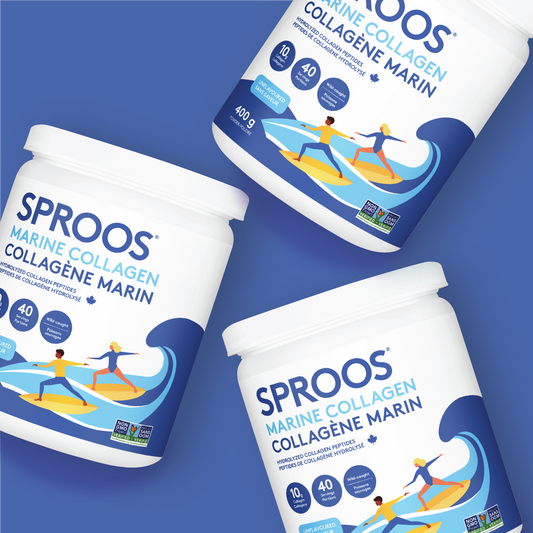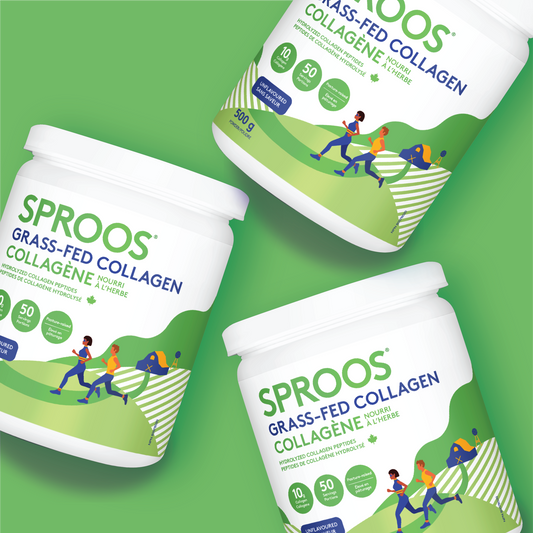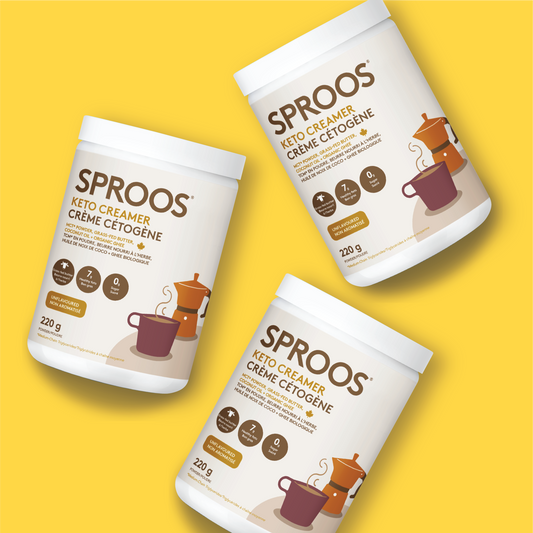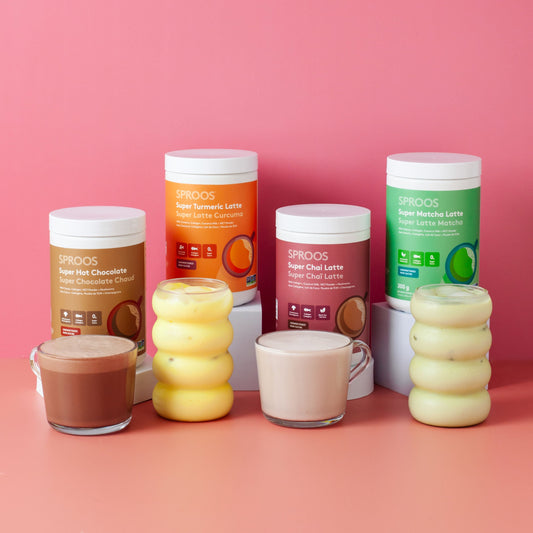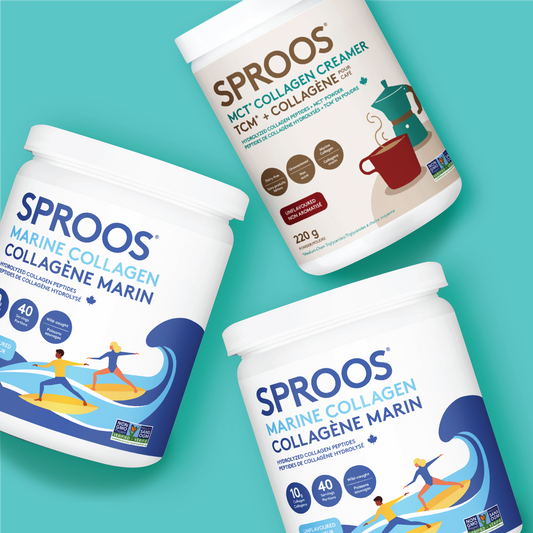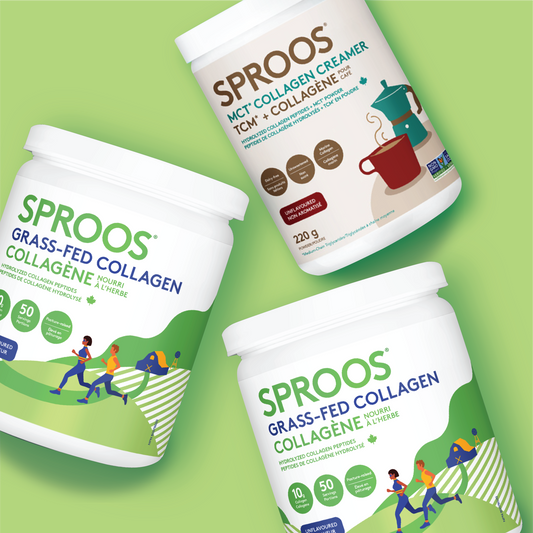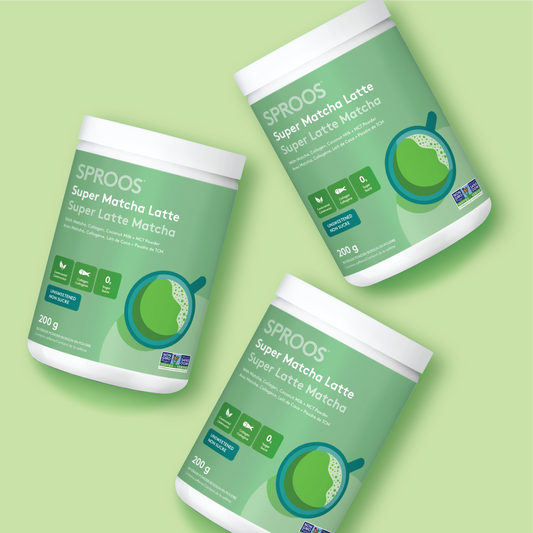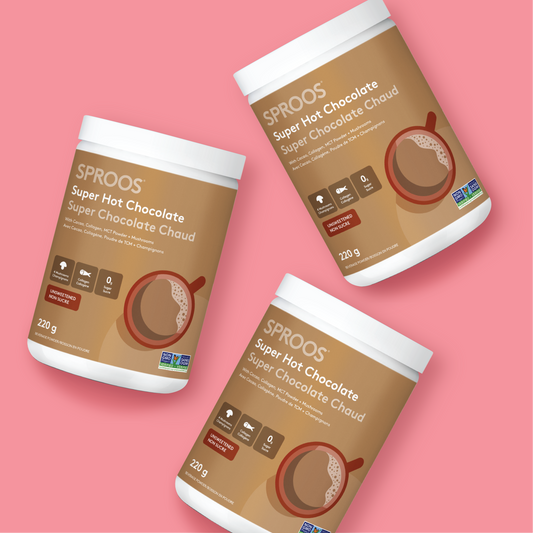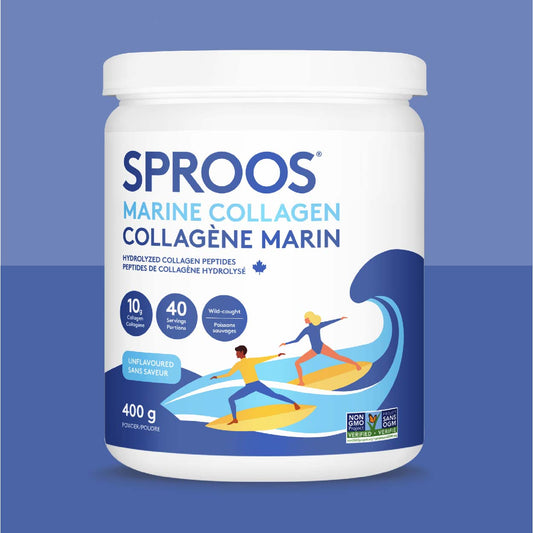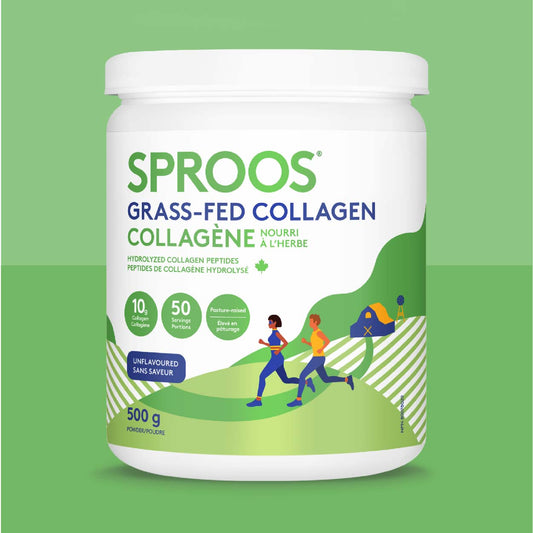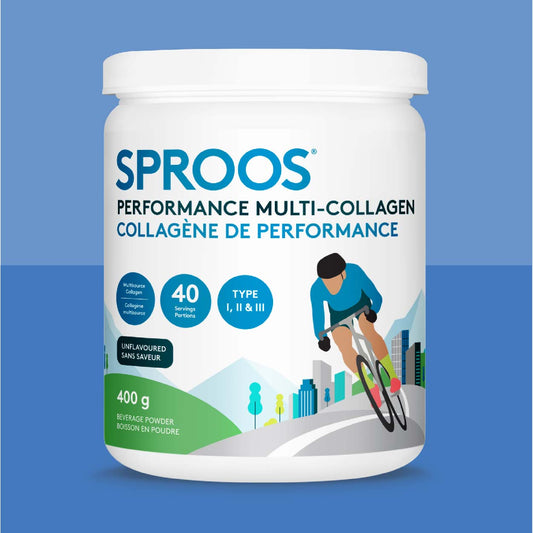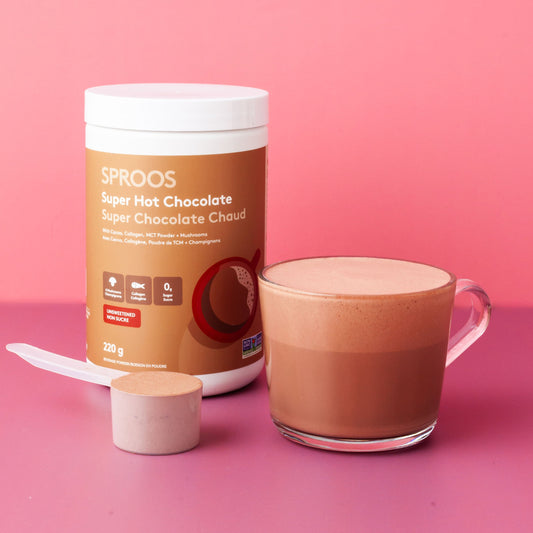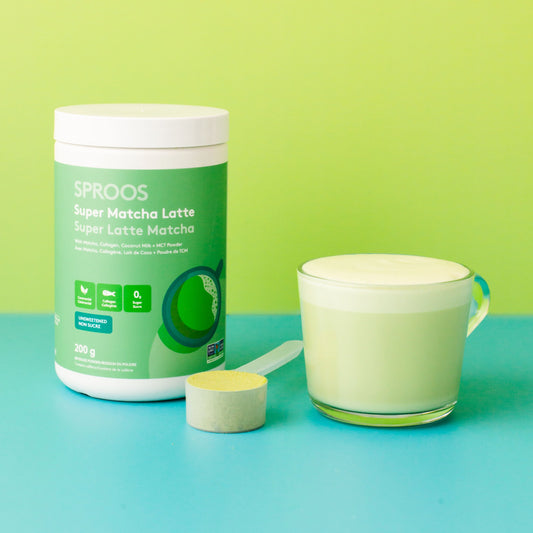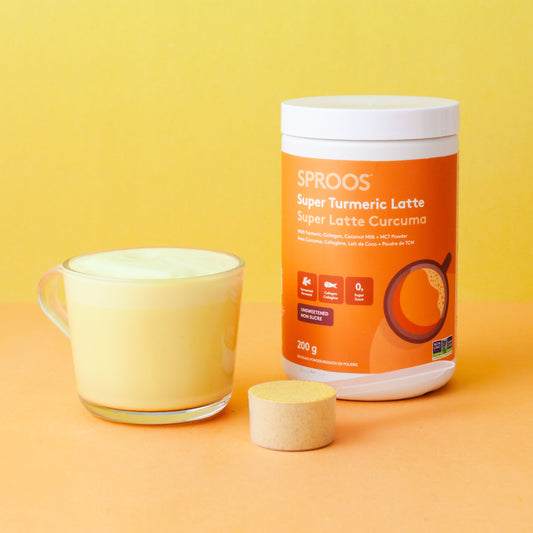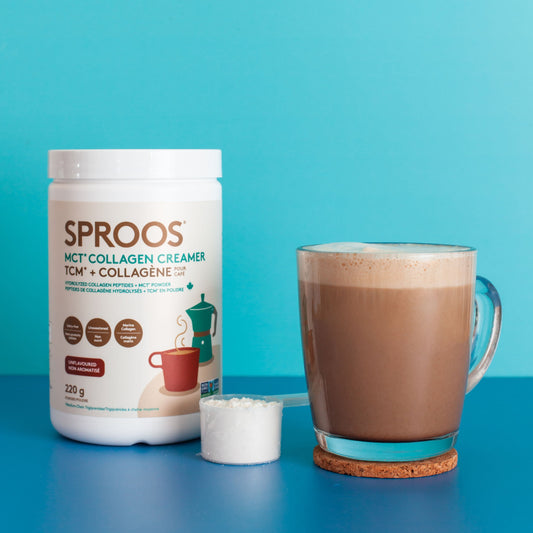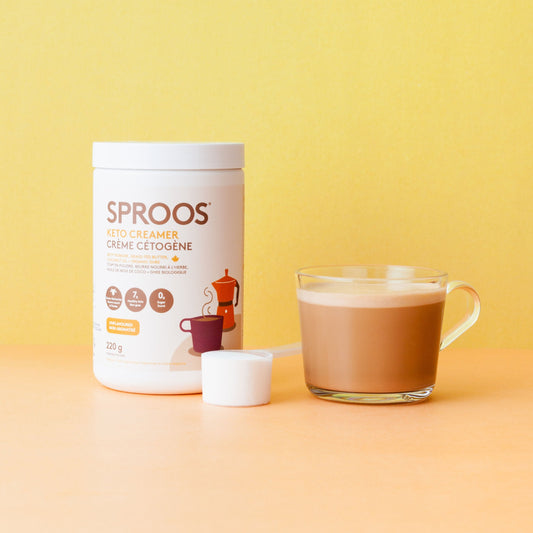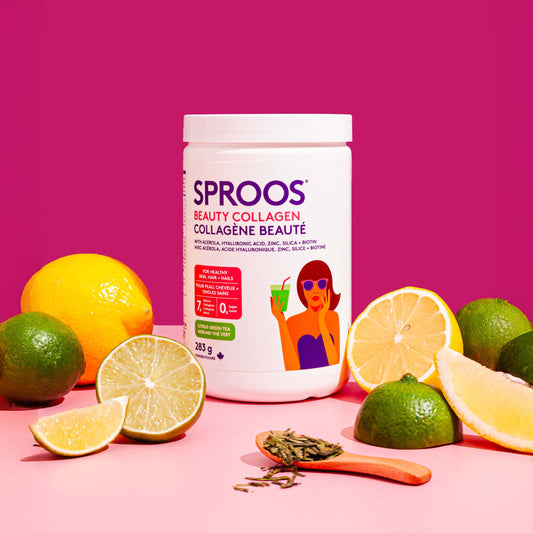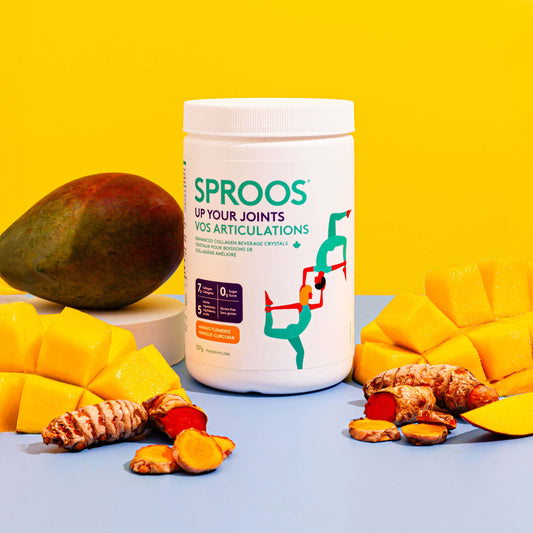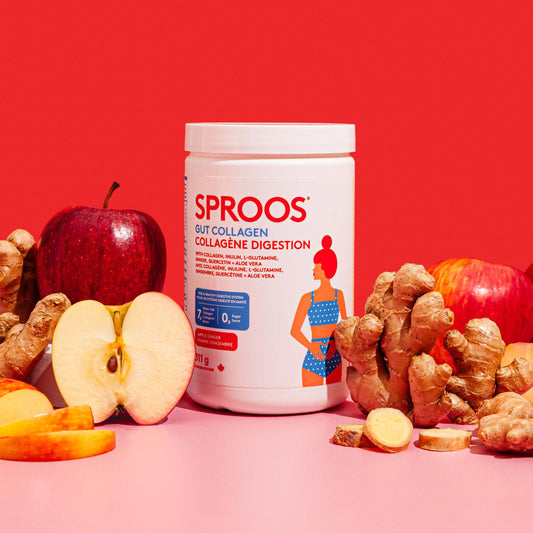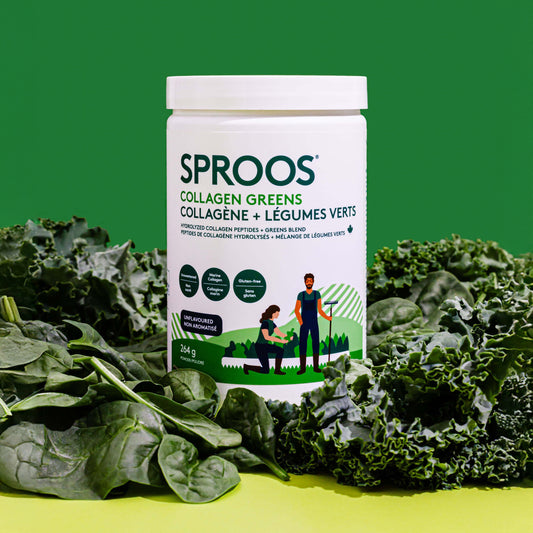If you’re interested in improving and maintaining the health of your skin, you’ve probably heard about collagen benefits for skin – people are now turning to collagen for acne scars, wrinkles, dry, sagging skin and even eczema. And it’s true that beyond improving joint pain, gut health and helping with injury recovery, collagen does play a key role in the health (and appearance) of our skin.
But which specific skin conditions can it be used for, and how exactly does it help?
Collagen is a naturally occurring protein made up of non-essential amino acids. It’s the most abundant protein in our body, and it affects our skin at the deepest levels. You see, collagen is actually what gives our skin it’s structure and stability – without collagen our skin would literally fall apart. This makes it a key player in maintaining a youthful, firm texture (not to mention that all-important glow).
Just to be clear, we’re talking specifically about taking hydrolyzed collagen supplements and not collagen creams. This is because supplementing with hydrolyzed collagen actually increases levels of collagen in the body. Creams applied to the outer dermis can only go so far.
Hydrolyzed collagen contains a smaller molecular structure. Once you eat collagen, it becomes available as peptides in your bloodstream – where it then gets carried off to the skin and tissues that need it most. Creams do a great job of moisturizing, but they can’t restore collagen levels in the body.
So let’s take a look at exactly how to use collagen for skin issues.
5 skin problems that collagen can help with
Collagen for Wrinkles
Collagen has been a go to ingredient in the beauty industry for years. Mostly due to its proven ability to help with fine lines and wrinkles. But if you’re still not clear on why collagen is so amazing for aging skin, let’s get schooled.
Basically, it’s all about elasticity. Research has shown that collagen measurably improves skin’s elasticity.
What does this mean? Elasticity refers to the skin’s ability to stretch and ‘bounce back’. It also plays into firmness, or plumpness. Skin with a high degree of elasticity has the ability to face the stressors of the day and wake up looking healthy and refreshed.
Another key ingredient that works wonders to combat wrinkles is Hyaluronic Acid (HA). HA improves your body’s ability to retain moisture, and also enhances the ability to produce collagen. Sproos Up Your Skin & Hair contains both collagen and HA, for a daily dose of this dream team.
Collagen for Acne
Collagen is a necessary component in the healing of wounds. As a key building block of the skin, collagen swoops in like our favourite superhero when wounding takes place.
How does it work? Like this: acne creates an area of the skin that’s basically having a mini crisis. With each clogged pore, or pimple, there is an overgrowth of bacteria. This bacteria is what causes swelling, redness, irritation, inflammation. And then, of course, we start to touch it.
These inflamed areas need time, TLC, and, as it turns out, collagen, in order to heal.
How collagen for acne helps: For starters, simply supplementing with hydrolyzed collagen can help to create decent levels of collagen in the body. This helps to curb the natural decline that we start to experience in our 20s, and keeps collagen readily available when your body needs it most.
And when our skin is damaged by an acne breakout, that collagen is put to good use in help with healing the wound. Collagen plays a key role in scarring as it’s used by the immune system to close the wound and form ‘new’ skin in the area.
And as for that nasty inflammation? One of the key amino acids found in hydrolyzed collagen supplements, glycine, also acts as an anti-inflammatory.
Collagen for Eczema
While there is some debate currently on what actually causes and exacerbates eczema, anyone who struggles with this skin condition can tell you: it’s time consuming to deal with, a total pain and even a bit mysterious.
While at present there is no evidence to suggest that collagen can prevent eczema, if we circle back to the acne section, we can underscore the role collagen plays in wound healing of the skin.
An eczema breakout is much the same as any other skin wound – it all starts with an inflammatory stage and then proceeds into the healing stages. Collagen is a big player in the healing process (not to mention that one of the amino acids, glycine, is also an anti-inflammatory). So the next time you’re dealing with an annoying eczema, consider a collagen supplement for help with healing.
Collagen for Dry Skin
Struggling with dry skin? Collagen can also improve the hydration of our skin. Studies have shown that 8 weeks of ingesting collagen significantly increases skin hydration.Collagen for Cellulite
While you can’t fight genetics (which is largely responsible for whether or not someone is prone to cellulite), you can count on collagen to help combat the appearance of it on your skin. You see, one of the results of diminishing collagen levels is thinning of the skin.
It’s this thinning that causes the appearance of cellulite and stretch marks to become more dramatic. By keeping collagen levels high (which translates into firmness and elasticity) skin will be less likely to collapse into cellulite. And studies have shown that taking collagen supplements regularly led to a clear improvement in women with moderate cellulite.
The Science is Clear: Collagen is a powerful tool for skin health.
If a lifetime of vibrant, healthy skin is important to you, adding collagen to the mix (early and often) will improve elasticity, combat wrinkles and help in healing issues like eczema and acne.
Wondering where to start? Bounce over to our guide on how to take collagen to make an informed decision about which type is best for you. (And while you’re there, be sure to check out the health benefits of collagen for intel on the whole-body benefits of collagen supplements).
Sproos’ enhanced collagen blends contain pure collagen and key active ingredients, designed to help your body (including your skin) heal from the inside out.


